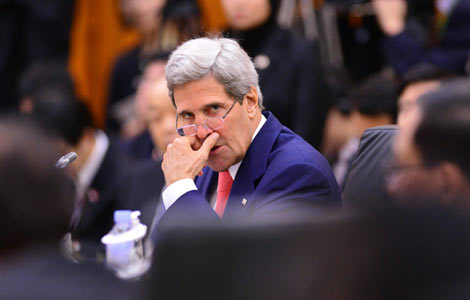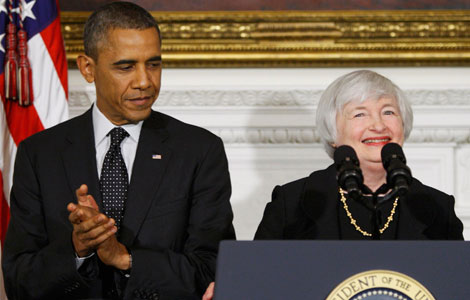Carbon tax to come in China
Updated: 2013-10-11 07:26
(China Daily/Xinhua)
|
||||||||
As Australia moves to scrap its pioneering carbon-pricing scheme, China is expected to have seven pilot pricing systems in place no later than 2015, followed by a national scheme, according to a new survey from the Australian National University.
The survey, a joint initiative between the Centre for Climate Economics and Policy in the university's Crawford School of Public Policy and Beijing-based NGO China Carbon Forum, collected the opinions of 86 China-based carbon pricing experts.
The survey found strong confidence that China will introduce carbon-pricing mechanisms in coming years, that the price of emitting carbon will rise over time and that China will have both a national emissions trading and a carbon tax by the end of the decade, the university said in a press release on Thursday.
Study co-leader and Director of the Centre for Climate Change Economics and Policy, Associate Professor Frank Jotzo, said that nationwide emissions trading is set to become a reality in China.
"This would quite possibly be in tandem with a carbon tax and would give a boost to China's efforts to limit emissions growth and stop growth in coal use," Jotzo said.
"A shift to market-based approaches to carbon control by the world's largest emitter is a big deal, especially at a time when Australia is poised to renounce its carbon pricing scheme," he said.
"It would be somewhat ironic if China, with its tradition of heavy-handed direct control of its industry, were to move to emissions pricing while traditional market economies, such as Australia and the United States, rely on more direct government involvement."
The survey also indicates an expected combined Chinese price for emissions trading and carbon tax of 70 yuan ($11.40) per ton in 2020, rising sharply thereafter.
The large majority of experts surveyed were also confident that China will achieve or surpass its 2020 emissions intensity target, and almost all expect that new targets will be set for 2020-25.
By Xinhua
Most Viewed
Editor's Picks

|

|

|

|

|

|
Today's Top News
Obama 'likely' to sign debt extention bill
Kerry says US will work to end fiscal crisis
Asian 'safety net' stressed
90% US firms make profits in China
Currency swap signed a 'landmark'
China calls for social reconciliation in Egypt
Libyan PM released
Trending news across China
US Weekly

|

|















